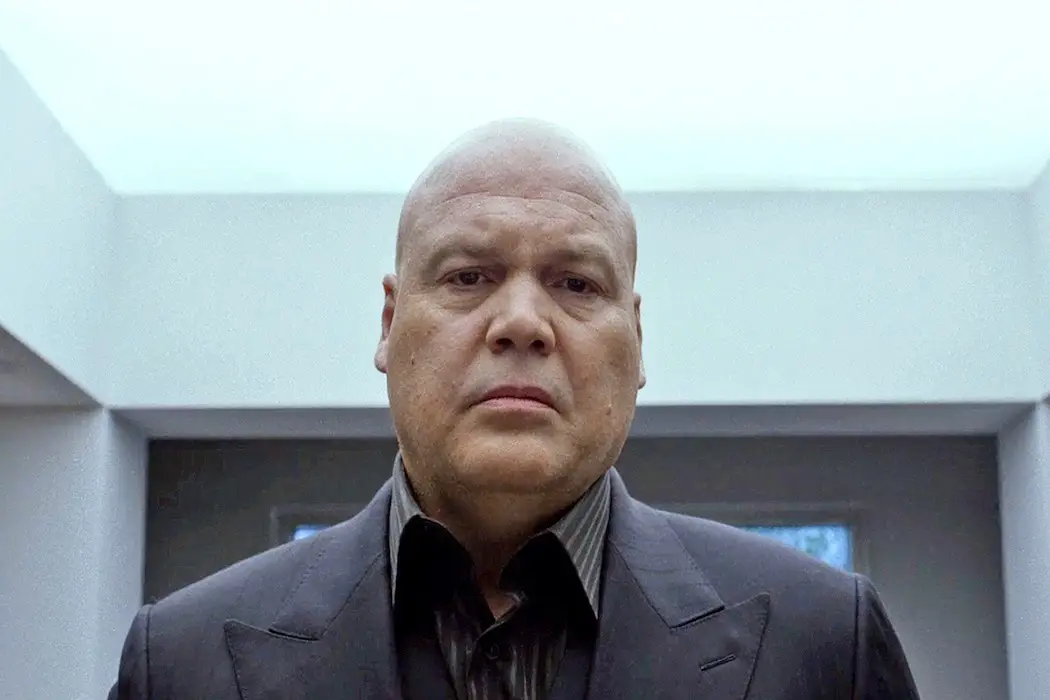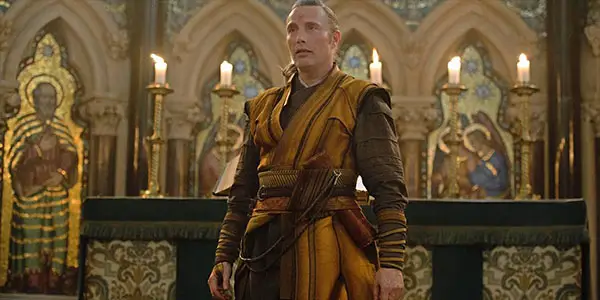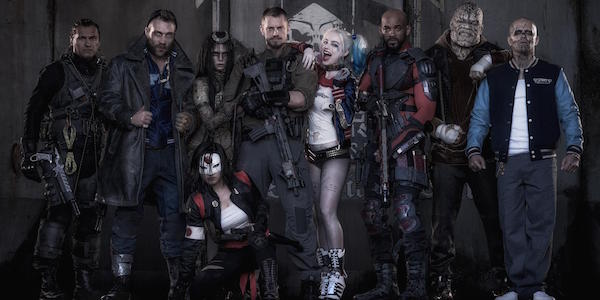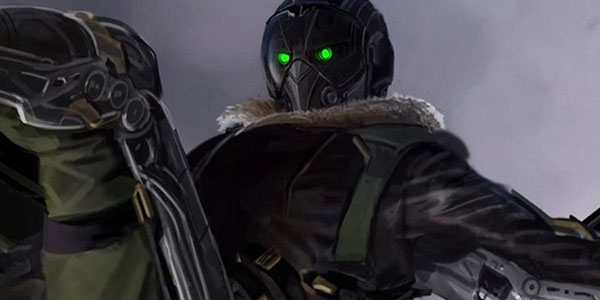It’s All Connected: Can Marvel Studios Solve Their Villain Problem?

Joseph is an Austro-American media and communications student currently living…
What comes to mind when I ask you about memorable movie villains? Maybe you remember the first time you saw Darth Vader (James Earl Jones) in Star Wars: Episode IV – A New Hope. What about the Joker (Heath Ledger) making a pencil disappear in in The Dark Knight. How does this question change when I ask you about a Marvel Studios film? Could be that you’d remember Loki (Tom Hiddleston) from Thor and Avengers. The dark reflection of Stark, Ultron (James Spader), from Avengers: Age of Ultron. Can you remember any other character?
While Marvel Studios has been quite successful with their heroes, their villains are lacking. No matter how famous the actor was, the antagonists were second to the hero. Marvel’s television ventures give their villains a considerable amount of focus. People remember Wilson Fisk (Vincent D’Onofrio) from Daredevil. Agents of S.H.I.E.L.D.‘s Grant Ward (Brett Dalton) changed from hero to villain. Even Sony’s deal with Marvel Studios may help the studio develop their villains.
One-Off Villainy
Marvel Studios has continued a main problem that superhero films had for years. No matter what the hero does, the villain tends to die at the end. This trend originates in the way cinema handles villains in general. The death of a villain highlights the victory of the hero. Also, future sequels need to introduce new antagonists. It makes the one from previous obsolete. What happens when there are many villains? In most cases, at least one will always perish to highlight the evil of the other. This aspect is also used often in TV shows to make the big bad of the series a true “villain”. It helped establish Wilson Fisk as a major threat.
Even heroes who do not kill have had this convenience. In Tim Burton‘s Batman, the main antagonist dies. Yet, Batman is against killing, but he does not try to save the Joker (Jack Nicholson). The main villain does not always die though. In The Dark Knight, the main antagonist is able to survive, but Harvey Dent did not share that luck. There are exceptions to this rule, but it is a rather disturbing trend. Characters that could have developed, get killed off before they can even become memorable.
Heroics Before Evil
Another issue arises that Marvel Studio’s focus on making effective origin stories. Their recent release, Doctor Strange, was about the titular hero. The antagonist had a short introduction, revealed his scheme and had one major fight. Mads Mikkelsen is a fantastic actor who played an incredible villain in the TV show Hannibal.
Yet in this film he only has one true conversation with the hero. He gives a short speech that reveals his goal, but that is about it. We do not even see him interact with his own underlings. The focus of this film is on Strange (Benedict Cumberbatch) and Strange alone. The villain’s story becomes plot convenience. At this point, you can guess what happens to Mikkelsen’s character at the end of the film.

One of their popular villains ended up being Loki. Not only did Tom Hiddleston give a great performance, but he was also given time. The character built a strong relationship with his brother Thor (Chris Hemsworth). It became the main focus of the first film. He interacted with other characters that flesh him out as a person. People did not just talk about his motives, we saw them. Sequels allowed him to evolve more and interact with new characters. Not every villain has to be redeemable, but some villains can benefit.
Yet, in the sequel, Thor: The Dark World, Malekith (Christopher Eccleston) was one-note. “World domination” does not suffice to make a character memorable. They had a great actor, but nothing to work with. His backstory ended up on the cutting room floor. He had a friend that gave a little insight, but not enough to understand his motives.
Television Shows A New Potential?
Television allows characters to evolve over many episodes. This advantage is that shows can give their villains their own focus. One of the most memorable episodes of Daredevil explored the childhood of Wilson Fisk. Film does not have this privilege due to the limited format. Yet, this special villain-centric episode can also explored in film. Creating films that focus on villains allows them to evolve. We get to know more about their motivation. Warner Bros. attempted this with Suicide Squad. It explored the villains and their perspective on a world full of heroes.

It would be interesting to see the world from Loki’s view. Either we see his path to redemption, or we continue to see his downfall. Thanos (Josh Brolin) will take center stage in Avengers: Infinity War. Yet, we know nothing about him since his first appearance. Would it not be interesting to see more of him before he comes into contact with the Avengers? Marvel Studios has approached this concept at one point with their Blu-Ray exclusive One-Shots. All Hail The King explored Trevor Slattery’s character past Iron Man 3. He may have faked being the Mandarin, but we got more insight into his character. It also revealed more about who the real Mandarin is. Imagine what could be if we had a full-fledged film?
Is Spider-Man A New Direction?
Spider-Man: Homecoming could be a new direction for the studio’s approach to villains. Spider-Man has one of the most memorable rogues gallery next to Batman. Not only that, the character has many villains that play a recurring role in Peter Parker’s life. Imagine we see this new version of Spider-Man (Tom Holland) fighting Dock Ock in one film. Then in a sequel he finds out that Doc Ock is dating Aunt May. It could lead to some rather fascinating character dynamics. Exploring family through their interactions, and how they bounce off of each other.

Sony once planned for a Sinister Six film featuring six villains that team up to defeat a greater foe. The Vulture (Michael Keaton) will appear in the reboot alongside Shocker and the Tinkerer. Three out of six members are already available. If they manage to survive the film, we could see the trilogy end with the Sinister Six facing Spider-Man. It gives the characters time to evolve and we get to see them all interact with each other.
A Better Future For Evil?
In the end, Spider-Man may be the hero that Marvel Studios needed. His rogues gallery adds much more memorable villains to play with. He is also a character that evolves through them. Marvel Television adds some competition for the films. It forces them to rethink their approach to antagonists.
With the superhero origin out of the way, it is time to give more attention to the villains. Films focusing on less heroic characters can diversify the genres they are able to approach. What about a heist film with a group of villains trying to steal technology from Stark Industries? Maybe a story about a villain that wants to redeem himself, but struggles with it? Marvel has such a wide variety of characters, imagination is the only limit. Evil comes in many different shapes and sizes.
Share your thoughts about Marvel’s villains below!
Does content like this matter to you?
Become a Member and support film journalism. Unlock access to all of Film Inquiry`s great articles. Join a community of like-minded readers who are passionate about cinema - get access to our private members Network, give back to independent filmmakers, and more.
Joseph is an Austro-American media and communications student currently living in Austria, who grew up with film most of his life. Having won a new appreciation of cinema as an art form and as an industry, he aims to learn as much about it as he can.













